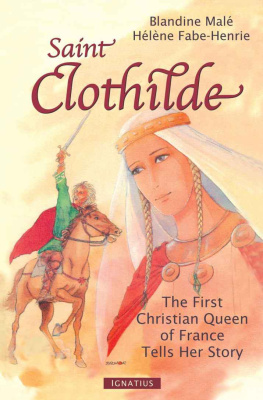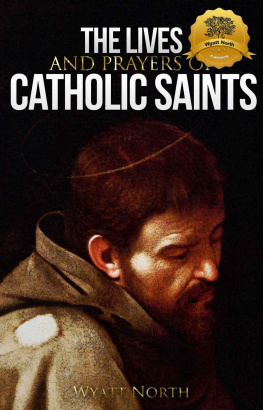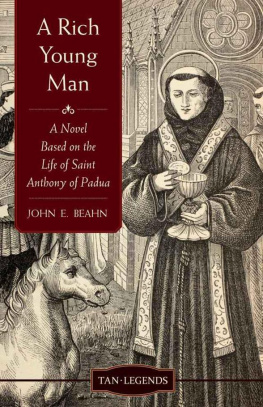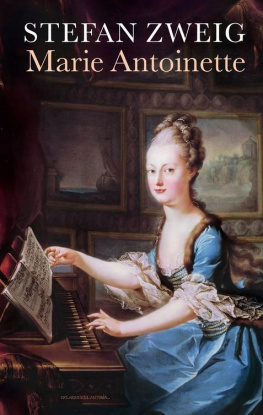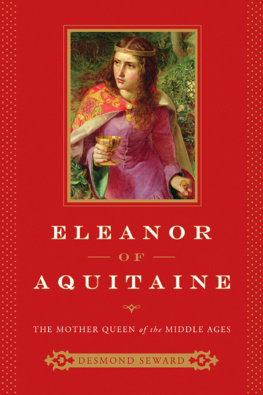SAINT CLOTHILDE
The First Christian Queen of
France Tells Her Story
BLANDINE MAL
HLNE FABE-HENRIET
Saint Clothilde
The First Christian Queen of
France Tells Her Story
Translated by Carlos Grider
Illustrations by Brunor
IGNATIUS PRESS SAN FRANCISCO
Original French edition:
Moi, Clothilde, ou les premiers pas de la France
1996 by ditions Pierre Tqui, Paris
Cover art by Brunor
Cover design by Riz Boncan Marsella
2011 Ignatius Press, San Francisco
All rights reserved
ISBN 978-1-58617-473-6
Library of Congress Control Number 2011905246
Printed in the United States of America
Contents
Clothilde recalls her youth in Lyon, where her father, Chilpric, is the king. She imagines her parents, her sister, and others around her. She relives the important events there.
Clothilde and her mother and sister withdraw to Geneva after the death of Chilpric. They receive advice from Bishops Avitus of Vienne and Prudentius of Lyon. Young Sdleube founds a monastery. Clovis, king of the Franks, asks for Clothildes hand in marriage. Departure of the princess, her voyage, and the meeting with her fianc.
The trip to Soissons, Clovis royal capital. Welcome by Bishops Remigius and Principius. The year 493: marriage. Introduction to a court, the majority of which is pagan.
First year of marriage. Clothilde learns what her role as queen will be. She visits peasants, goes on hunts. She attends the burial rites of a warrior. Summer in the royal villa. Meeting with Bishop Remigius. Message from Genevive of Paris.
Birth and baptism of Ingomer. Birth of Clodomir. Birth of two more sons and one daughter. Victory over the Alamanni. Clovis promises to be baptized. Bishop Remigius gives instruction to Clovis. Clovis baptism in Reims.
Clovis military expedition in Burgundy. Clothildes trip to Auxerre. A trial. Departure by the army to fight the Visigoths south of the Loire. Victory at Vouill. Clothilde joins her husband in Bordeaux. A stay in the villa of a noble Gallo-Roman. At Tours, Clovis receives his badges of office as a Roman consul. Clovis chooses Paris for his capital.
Clovis and Clothilde in Paris. Their wise government. Construction of the Basilica of the Holy Apostles. Death of Clovis. Division of the kingdom between the three sons. Clothilde withdraws to Tours with her daughter. Clothildes unhappy marriage to Amalaric in Spain. Vengeance by her brothers. Death of the princess.
The year 524: a terrible year. Murder of Clothildes grandchildren by their uncles. Clodoald is saved. Clothildes last return to Tours. She lives the life of a nun. Clodoald, now a hermit, receives a visit from his grandmother. Clothildes acts of charity. She prays to Saint Martin to keep her sons from warring against each other. She saves a soldier and his family from a life of misery.
The first queen of the Franks tells her story....
In the year 545, the former queen of the Franks, retired and living in the city of Tours, looks back on the great events of her life.. .
Clothilde remembers....
I
In the city of Tours, Easter morning of the year 545.. .
I awake joyous this morning. The heavens are celebrating, and the bells also rejoice by sending, from bell tower to bell tower, their message of the Resurrection. What a delight it is to celebrate Easter one more timeand without doubt, the last, for I am nearing seventy and my strength is waning .
Seated here at my window, I watch the bell towers of the basilica as they emerge from the mist. That is where blessed Martin lies in rest. How I enjoy looking at that place, for it holds the relics of the evangelizer of Gaul, the protector of my sons, kings of the Franks. I had sought refuge near Martin at the death of Clovis, when my human hopes were dashed, some thirty-four years ago.
I founded this convent where I now live like a nun. I have given up silk robes for a tunic of rough serge and choice delicacies for bread and vegetables, the food of the humble. I have vowed my life and my riches to the poor and the ill. Our Lord said, As you did it to one of the least of these my brethren, you did it to me.
Through wisps of mist I can see the river Loire. I have always loved cities that lie next to water. I was born in Lyon, between the Sane and the Rhne. While still a small child, I was already tugging my nursemaid to their banks, where I would remain motionless for a long time, watching the swirling waters.
Now that I am no longer active, I have all the time in the world to contemplate the river beside which I am nearing the end of my life. And now my spirit is finding peace. If painful memories assail me, I offer them up to the waters course, which carries them off. But on this blessed Easter morn, it is a flood of happy images that I welcome. And they take me back to my most distant past.
I see Lyon again, that dear city where I was born. At the height of the Roman Empire, it was the capital city of the Gauls. But when the empire collapsed, Lyons walls did not protect it. Sometimes, at the corner of a winding street, one finds the ruins of an imposing monument, the remains of former splendor. Now it is only the capital of my fathers kingdom. My family is Burgundian, originating from beyond the river Rhine. Together with other Germanic invaders, we occupied all of Gaul. Our particular territory, located in the southeast of Gaul, is called Sapaudia (Savoy), and my father and my uncles govern it officially in the name of the emperor. But the emperor is no longer in Rome; he is very far away, in Constantinople. In fact Romans living here in Gaul have become our subjects.
But the people of Lyon have no reason to complain, as my father, Chilpric, is a good sovereign. He protects the humblesomething that elsewhere does not happen often. Once, an abbot alerted him that a great landholder had reduced some poor peasants to slavery. My father had them freed immediately.
My father calls me his very well-behaved Clothilde. Whenever he enters the quiet womens quarters, everything turns lively at the very sound of his hearty voice. He picks me up in his arms, and I am in wonder of him, for no one is as tall or as handsome as he. His red mustache rubs against my cheek. But I do avoid contact with the cold enamel-and-gold clasp that holds his tunic shut. This pin is in the form of a dragon, and a servant has told me that the dragon is a creature of the devil. But papa claims otherwise. He says that in the land from which we come, such animals are everywhere, as are elves, goblins, and fairies. I listen, delighted. Papa makes up wonderful stories, and his joy for life is contagious.
My mother, Cartne, remains in the radiant shadow of her husband, discreet as a wife should be; but her influence is great, and everyone knows it. Besides, among the Germans, women play a more important role than they do among the Romans. Chilpric and Cartne are a model couple. They are deeply united. The only cause of distress for my mother is that her husband is reluctant to break with his religion, which is different from our own. He does not want to upset the Burgundians. But deep in his heart, he is Catholic like his wife and children.
I admire my mothers calm, her serenity, and I follow her everywhere. She goes often to her chapel, where her face is aglow whenever she lifts her eyes toward the holy images. I have sensed the flame that burns beneath the seeming coldness of the queen: she greatly loves Jesus and Mary. It is at her knees that I, too, am learning to love them for the whole of my life. My mother is passing on to me her Catholic faith. But of those in her circle, she is almost alone in rejecting Arianism. She firmly believes that in Christ, God became man because of his love for us. It is a mystery, as is everything that concerns the divine. And I understand that God is both very great and, at the same time, very near to us.
Next page
